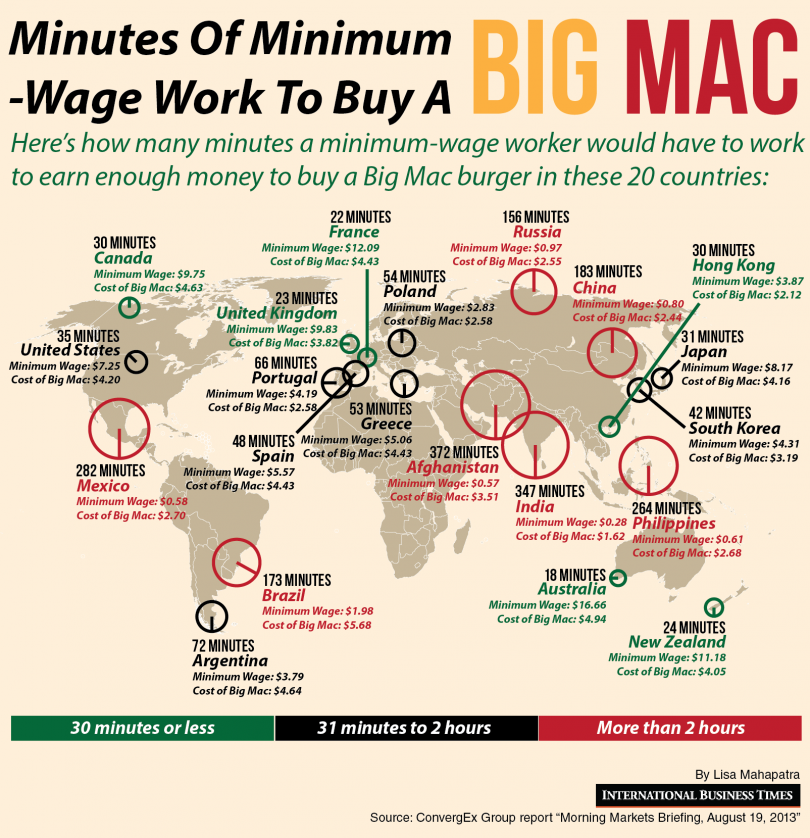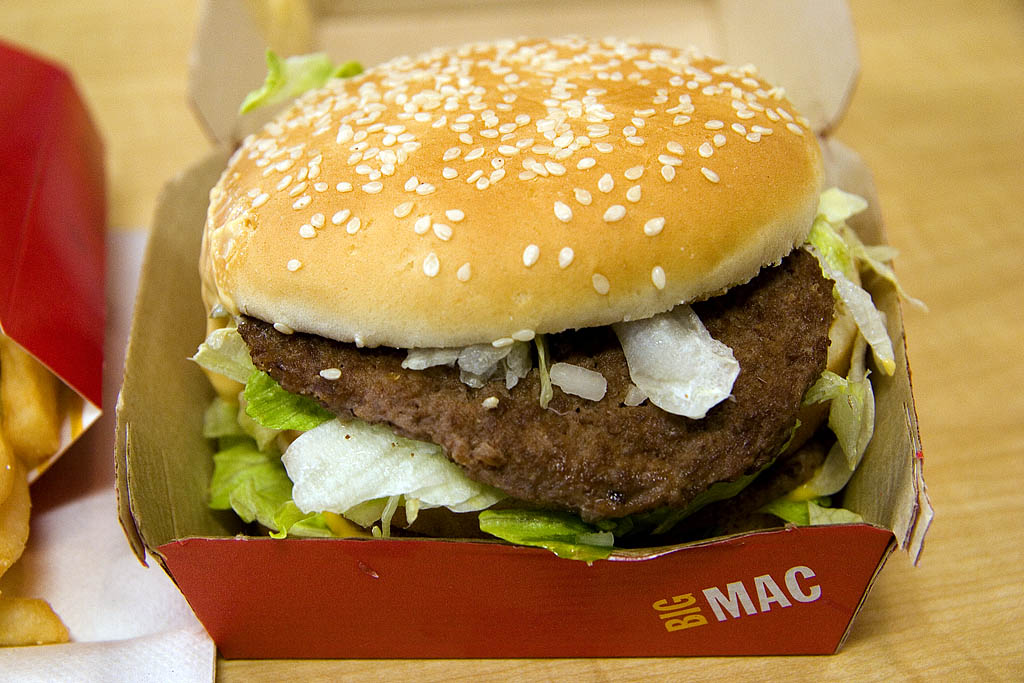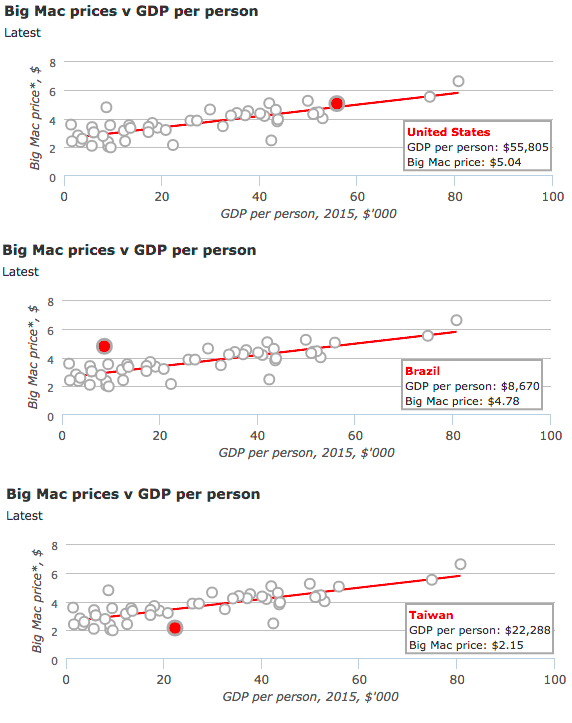How a Big Mac Can Teach You About the World Economy

By:
Long before presidential candidate Donald Trump shared an image of himself dining on a Big Mac aboard his private airliner, the "two all beef patties" were a staple of American politics.
Months prior to the launch of her 2016 presidential campaign, the Washington Post pondered if "Hillary Rodham Clinton was a McDonald's Big Mac or a Chipotle burrito bowl." Two decades earlier, Saturday Night Live famously skewered Bill Clinton's love of a the Golden Arches in sketch where explains his foreign and domestic policies between bites of the burger.
For better of worse, the Big Mac symbolizes the power of American industry to produce affordable commodities in high volume.
But is the Big Mac really a great value for American consumers?
Believe it or not, there's actually an abundance of data regarding this very question, and the answer tells us a lot about how the American economy compares to the rest of the world.
Let's start with this 2013-infographic created by the International Business Times, which resurfaced on the Data Is Beautiful subreddit this week.
 International Business Times - ibtimes.com
International Business Times - ibtimes.com
One subreddit user followed up with a new, interactive version of the map, which includes up-to-date wage and currency value information.
So what do we learn?
For starters, the Big Mac is a decent value for Americans, who can earn enough to buy one in 42 minutes of work. However, it's far more affordable for low-wage workers in Australia, New Zealand and the The Netherlands, who make enough to buy the burger in less than half as much time on the job. On the other hand, workers in India, Sri Lanka, and Venezuela have to work 438, 558 and 1,193 minutes, respectively, to afford the a Big Mac.
 Flickr.com / pointnshoot - ibtimes.com
Flickr.com / pointnshoot - ibtimes.com
Economists have long looked to the Big Mac as an economic indicator.
In fact, The Economist magazine has released their Big Mac Index ever since 1986 as "a lighthearted guide to whether currencies are at their 'correct' level."
As you can see from these below charts made by The Economist, U.S. incomes are high, and the cost of a Big Mac is pretty high, too. This suggests the U.S. dollar is fairly valued.
 The Economist - economist.com
The Economist - economist.com
Elsewhere, the low cost of a Big Mac in Taiwan, compared to relatively high incomes, suggests the New Taiwan dollar is undervalued. And, looking at the low-incomes and comparatively high Big Mac prices in Brazil, the inverse is probably true of the Brazilian Real.
While the Big Mac remains a reliable economic indicator, and McDonald's has regained its footing after a difficult 2015, it's worth noting that the burger index now faces some competition from another fast food item, which reflects the recent shift in the American fast food industry.
That's right, there's now a burrito index.
